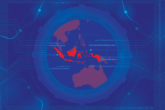February 19, 2020
Faux News Articles and Social Media Posts Will Haunt This Election
Last September, an image of a New York Times headline began circulating online, claiming that Abdullah Abdullah, a candidate for the Afghan presidency, had taken millions of dollars from Pakistan. Though the Times never published such a story, the convincing fake image—complete with the font and website design—exploited longstanding divisions in Afghan politics during a closely contested presidential election. For its creator, this piece of content became a useful tool for undermining Afghanistan’s already-fragile politics.
On Feb. 4, amid growing concern about deepfakes—ultra-convincing fake images and videos created using AI—Twitter announced a new set of policies to address synthetic and manipulated media on the platform. Under its new policies, Twitter will examine whether a piece of media content has been altered or fabricated, if it has been shared in a “deceptive manner,” and if it is likely to “impact public safety or cause serious harm.” The policies also attempt to establish guidelines to gauge a user’s intent to deceive.
Read the full article in Slate.
More from CNAS
-
Siliconsciousness: The AI Competition: Public Policy Strategies: Part 1
This episode comprises the first part of our special event, “The AI Competition: Public Policy Strategies”. The event, co-hosted by MIT Technology Review, brings together some...
By Dr. ED McGrady
-
How Drones in Ukraine Are Reshaping War
Samuel Bendett, a senior adjunct fellow at the Center for a New American Security, joins The Cipher Brief to discuss the current situation of drones being used in Ukraine.Watc...
By Samuel Bendett
-
Countering the Digital Silk Road: Indonesia
This year marks the 10th anniversary of the Digital Silk Road (DSR), China’s ambitious initiative to shape critical digital infrastructure around the world to advance its geop...
By Vivek Chilukuri & Ruby Scanlon
-
How Secure Is America’s AI Advantage?
https://www.youtube.com/watch?v=7njJkH7XRa8...
By Paul Scharre



